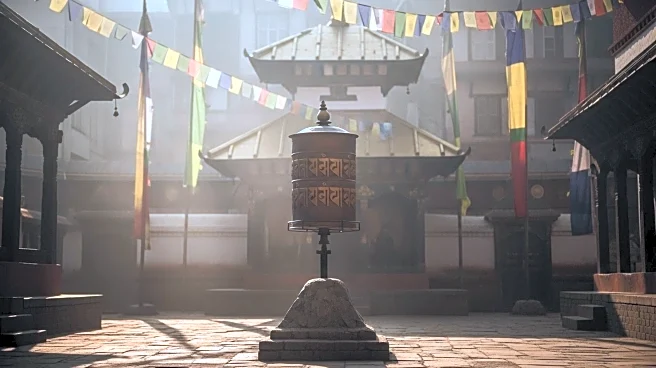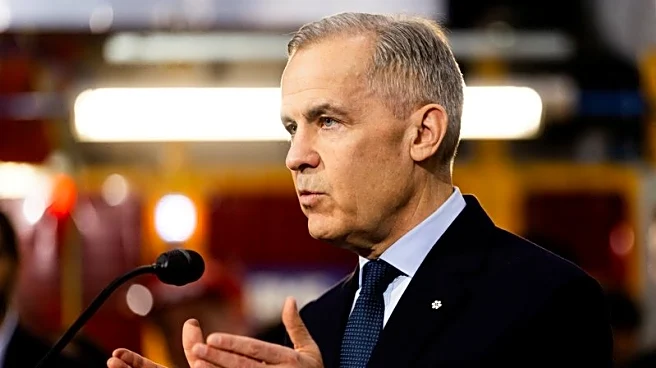What's Happening?
The U.S. State Department has issued a 'Level 3: Reconsider Travel' advisory for Nepal due to ongoing civil unrest in major cities like Kathmandu and Pokhara. The protests, which began on September 8, were triggered by a government-imposed social media ban and widespread anti-corruption demonstrations. The unrest has resulted in 22 deaths and numerous injuries, leading to the resignation of Prime Minister KP Sharma Oli. An interim prime minister, Sushila Karki, has been appointed until elections scheduled for March 2026. The advisory warns travelers to have evacuation plans that do not rely on U.S. government assistance, to monitor local media, and to avoid crowds and demonstrations.
Why It's Important?
The travel advisory highlights significant instability in Nepal, which could impact tourism and international relations. The protests reflect deep-seated dissatisfaction with government policies, particularly among the youth, and have led to significant political changes, including the resignation of the prime minister. The advisory may deter U.S. travelers, affecting Nepal's tourism-dependent economy. Additionally, the unrest and government response could influence Nepal's political landscape and its relations with international partners.
What's Next?
Travelers to Nepal are advised to enroll in the Smart Traveler Enrollment Program (STEP) for updates and alerts. The interim government will need to stabilize the situation and prepare for the upcoming elections. International observers may monitor the situation closely, and further unrest could lead to additional advisories or international interventions.












